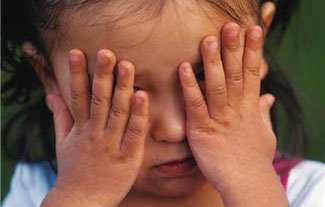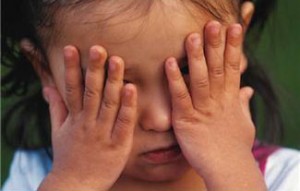
Parents have many decisions ahead of them when babies grow into young children: vegan or meat, car or van, spanking or non-violence.

When any parent chooses to use corporal punishment it makes sense for them to have a goal in mind. The usual goal might be to teach the child, to help them learn something productive or a lesson. Having considered that, the person administering the corporal punishment would want to calmly explain the reason and goal for the punishment, and to then carry out the actual corporal punishment in a calm, reasonable, controlled manner. The current cultural practice would be the bare, open palm of the hand striking the child’s bottom (bum, behind, buttocks, derriere or rump). Once the corporal punishment is completed, the parent would want to reassure the child that in spite of the pain and humiliation they have just experienced, they truly do love them. A hug and maybe a kiss on the forehead would be in order.
Here are a few common examples from my own childhood; let’s see if my parents had a (1) goal in mind, (2) calm explanation, (3) controlled delivery and (4) reassurance and affection afterward:
My mother used a belt or a switch most of the time and she did not always need a reason but three that stand out are (1) a forgotten chore, (2) a lost hammer and (3) an incorrectly done chore. Right now I remember the whippings but I cannot remember where I left the hammer, which chore I forgot or which of the many things I did wrong. (I was expected to know how to do many chores without any instruction.)
If my mother’s goal was to help me remember or learn to do something her way then she might not have whipped me as long or hard as she needed to. My Mom missed any calm explanation and went straight to swinging the belt. To this date she has not once told me she loved me, hugged me or kissed me.
As for Mom’s efforts: I would chalk that up as a colossal fail.
My Dad, on the other hand, was a little more goal oriented; he wanted me to do better in school. My grades were pretty bad and couple reasons were (1) I talked and wasted time in class and (2) the male math teacher touched girls when they went to him to ask for help. Once I lost those key steps in math I could never catch up.
Every nine weeks report cards went home and Dad would make me hold onto the sewing machine cabinet, then he would take off his leather belt and whip me with it. [We figured out his method: he would beat us till we cried and danced around, then he would beat us till we shut up.] Dad was not as out of control as Mom when he whipped but I think he still missed the goal. Not once did he ever ask me if I needed help with schoolwork or offered it. My dad never spoke with any of the teachers on my behalf. He never asked me anything about school. There was no explanation or talk; imagine a chat with a belt dangling close by.
Again— no hug and no reassurance but a stern command, “Get better grades this time!”
Dad was more controlled but still asleep at the wheel— massive fail.
My first-hand experience proves to me that corporal punishment does not work and I cannot understand why some parents fail to grasp the logic. We have all read the studies and fact-sheets on spanking, whipping and beating and the proof is staggering.
Admittedly, I am not a professional with the alphabet soup after my name but this is not rocket science— it does not take a genius to understand the outcomes.
Children who are subjected to corporal punishment reportedly:
• Have lower IQs (intelligence quotients)
• Have lower self-esteem
• Display higher aggression tendencies
• Have more anxiety
• Have more anger management issues
• Experience more depression (including life-long depression)
• Tend to accept violence as a solution
• Tend to use corporal punishment on their own children (the gift that keeps on giving)
Does a parent want this for their children? Does a parent want them to perform badly in school and possibly become a target for bullies? Does a parent want their children to be anxious and depressed? Does a parent want their children to get into trouble for fighting or bullying?
Did you know…?
• Boys are spanked more often than girls.
• Minority children are spanked more often than Caucasian children.
• Less educated parents tend to use corporal punishment and violence more.
• Spanked children may become targets for bullies or become bullies themselves.
• “Spare the rod” was speaking of a shepherd’s “rod of guidance.” Shepherds did/do not beat sheep.
Why do parents use corporal punishment?
• Parents are angry or frustrated in the moment.
• Corporal punishment was used on them and they think they turned out alright.
• Parents don’t know of other discipline options or are too tired to investigate.
• Parents have little time to learn other parenting options.
• Corporal punishment is faster and easier.
What other options are there?
• Time out: Children are restricted to a specific place for a specific amount of time for a particular behavior or misbehavior.
• Reasoning with children – Explaining or teaching why or why not.
• Taking away privileges – Food and clothing are necessities but toys and games are privileges.
• Redirecting children – Redirect attention to something else that is allowed or encouraged.
• Grandma’s rule: When & Then – “When you put away the truck then you can play with the ball.”
• Listening to Children – Listening helps many ways: a means of clarifying their feelings, venting their frustration, etc.
• Giving choices – “You can go to bed in 15 minutes or 10 minutes, which would you prefer?”
• Natural & logical consequences – “If you do not clean your snack mess from the TV room you can no longer go in there.”
Things for corporal punishers to think about:
• Generally, when a parent hits, smacks, slaps or whips their child it is in anger and only serves as a self-gratification measure to vent.
• If parents give themselves permission to spank (hit, whip, beat, slap, kick), where and when do they stop?
• After using spanking, if parents discover a developmental reason or a condition that makes it difficult for their child to act or behave as they expect, how would that make them feel?
• If a small spank on the bottom works at age five, what works at age fifteen?
• When parents hit as a punishment, do they think about their children taking care of them when they can no longer care for themselves?
• Punishment focused discipline is not as successful or effective as teach/learn focused discipline in turning out caring, responsible citizens.
• When corporal punishment lowers self-esteem and makes children targets for bullies, why would any parent still choose spanking or hitting?
• Corporal punishers often leave marks or injure children by accident, not realizing how hard they hit or the child was indirectly injured while trying to dodge blows.
• A portion of the U.S. population has extreme anger-rage issues that would make it very difficult for them to stop an act of corporal punishment once it has begun. Most in this anger-rage population remain undiagnosed and untreated.
• Any time news reports the beating death of a child, many parents feel terrible and wonder, “How could this happen.”
• Having children removed from the home by the Child Protective Services (CPS) is as traumatic for the children as parents.
• Parents often find having a child removed by CPS is costly: paying for parenting classes, paying child support, paying diagnostic or treatment fees.
• Being investigated by CPS can be embarrassing and humiliating as parents’ most private information is exposed.
Wanting better for my children, I chose non-violent discipline for Chelsey and Katie. Because I was abused as a child, I did smack or slap them, but fewer times than the number of fingers on one hand. With the improvement I have made, if they have children, they are not as likely to abuse. The rationale escapes me why a parent would handicap their children by choosing corporal punishment.
I am always open to respectful dialog on this or any subject let me hear about your ideas.